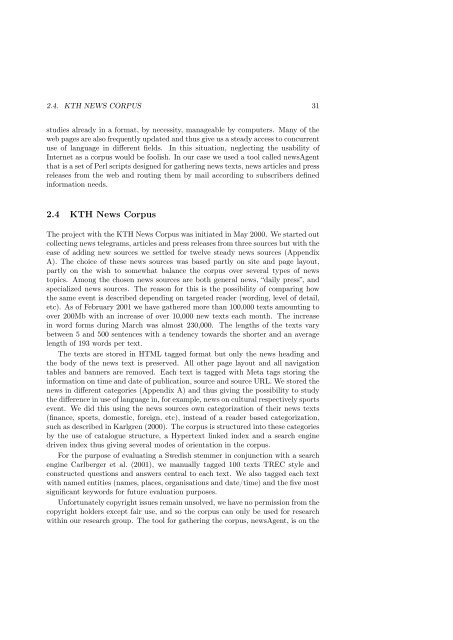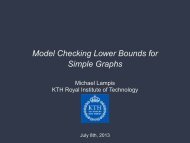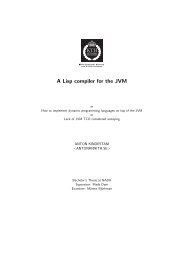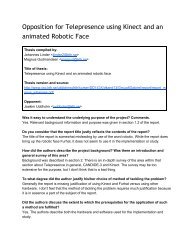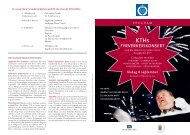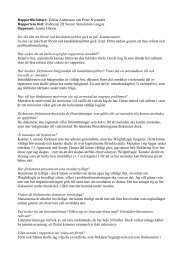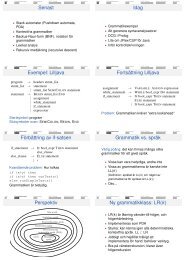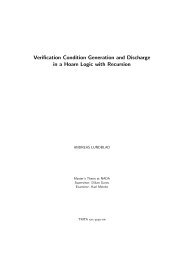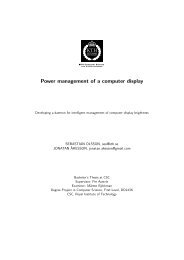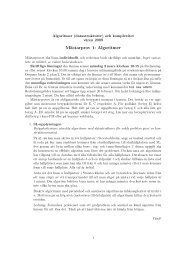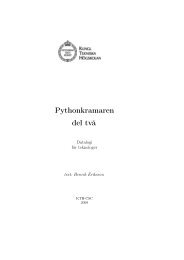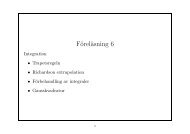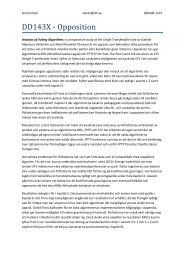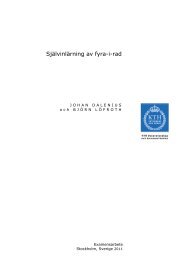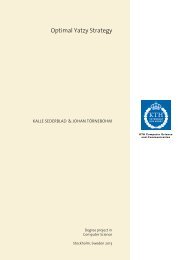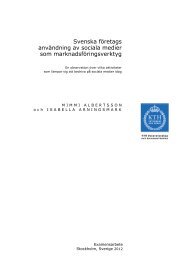Evaluation of Automatic Text Summarization - KTH
Evaluation of Automatic Text Summarization - KTH
Evaluation of Automatic Text Summarization - KTH
Create successful ePaper yourself
Turn your PDF publications into a flip-book with our unique Google optimized e-Paper software.
2.4. <strong>KTH</strong> NEWS CORPUS 31<br />
studies already in a format, by necessity, manageable by computers. Many <strong>of</strong> the<br />
web pages are also frequently updated and thus give us a steady access to concurrent<br />
use <strong>of</strong> language in different fields. In this situation, neglecting the usability <strong>of</strong><br />
Internet as a corpus would be foolish. In our case we used a tool called newsAgent<br />
that is a set <strong>of</strong> Perl scripts designed for gathering news texts, news articles and press<br />
releases from the web and routing them by mail according to subscribers defined<br />
information needs.<br />
2.4 <strong>KTH</strong> News Corpus<br />
The project with the <strong>KTH</strong> News Corpus was initiated in May 2000. We started out<br />
collecting news telegrams, articles and press releases from three sources but with the<br />
ease <strong>of</strong> adding new sources we settled for twelve steady news sources (Appendix<br />
A). The choice <strong>of</strong> these news sources was based partly on site and page layout,<br />
partly on the wish to somewhat balance the corpus over several types <strong>of</strong> news<br />
topics. Among the chosen news sources are both general news, “daily press”, and<br />
specialized news sources. The reason for this is the possibility <strong>of</strong> comparing how<br />
the same event is described depending on targeted reader (wording, level <strong>of</strong> detail,<br />
etc). As <strong>of</strong> February 2001 we have gathered more than 100,000 texts amounting to<br />
over 200Mb with an increase <strong>of</strong> over 10,000 new texts each month. The increase<br />
in word forms during March was almost 230,000. The lengths <strong>of</strong> the texts vary<br />
between 5 and 500 sentences with a tendency towards the shorter and an average<br />
length <strong>of</strong> 193 words per text.<br />
The texts are stored in HTML tagged format but only the news heading and<br />
the body <strong>of</strong> the news text is preserved. All other page layout and all navigation<br />
tables and banners are removed. Each text is tagged with Meta tags storing the<br />
information on time and date <strong>of</strong> publication, source and source URL. We stored the<br />
news in different categories (Appendix A) and thus giving the possibility to study<br />
the difference in use <strong>of</strong> language in, for example, news on cultural respectively sports<br />
event. We did this using the news sources own categorization <strong>of</strong> their news texts<br />
(finance, sports, domestic, foreign, etc), instead <strong>of</strong> a reader based categorization,<br />
such as described in Karlgren (2000). The corpus is structured into these categories<br />
by the use <strong>of</strong> catalogue structure, a Hypertext linked index and a search engine<br />
driven index thus giving several modes <strong>of</strong> orientation in the corpus.<br />
For the purpose <strong>of</strong> evaluating a Swedish stemmer in conjunction with a search<br />
engine Carlberger et al. (2001), we manually tagged 100 texts TREC style and<br />
constructed questions and answers central to each text. We also tagged each text<br />
with named entities (names, places, organisations and date/time) and the five most<br />
significant keywords for future evaluation purposes.<br />
Unfortunately copyright issues remain unsolved, we have no permission from the<br />
copyright holders except fair use, and so the corpus can only be used for research<br />
within our research group. The tool for gathering the corpus, newsAgent, is on the


